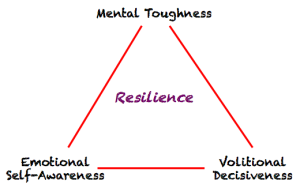Have you ever experienced anything like this?
Tom’s colleagues have started to side-line him ever since he raised a question about a popular proposal which favoured an influential segment of the company.
A senior colleague seems to be playing a political game with Tom, maintaining a cordial front but insinuating his incompetence and lack of cooperation to his bosses.
Tom’s company announced an ambitious 5-year plan and his targets have just been increased 25% for the next 6 months. His top performing team member had been poached by another department and another key staff member had just begun her four-month maternity leave.
Meanwhile, Tom is juggling a home situation with elderly parents in poor health and teenage children who have not been performing well in school for several years now.
It’s Friday night. Just when he was looking forward to a much needed weekend break with the family, Tom receives an email from his manager about an assignment that is due on Monday morning.
“How much worse could it get?” He wonders.
Most people can handle a certain degree of stress. All of us have a limit.
 Two factors contribute to the intensity of stress experienced:
Two factors contribute to the intensity of stress experienced:
(1) the number of demanding events experienced within a short space of time
(2) the magnitude of the consequences that hinge on your response to each situation
Resilience, in turn, comprises two components:
(1) the belief that you can respond successfully to these situations
(2) minimal adverse effect on the rest of life
On the basis of these two components, you can respond effectively to demands while engaging the rest of life ‘normally’. Without a doubt, resilience is an increasingly important quality to navigate today’s complex environment.
 Traditional strategies Some have focused on building mental toughness. Some have suggested emotional intelligence. Others have proposed sheer grit and will-power. In truth, it is probably all three.
Traditional strategies Some have focused on building mental toughness. Some have suggested emotional intelligence. Others have proposed sheer grit and will-power. In truth, it is probably all three.
Our pitch for Emotional Intelligence – the starting point is emotional self-awareness.
“I’m not angry!” screamed the manager, red-faced and jumping to his feet in the middle of the meeting. Yet it was obvious to everyone else that he was fuming mad. The point is, without emotional self-awareness and acknowledgement, there is no effective remedy to the situation.
In the same way, declaring, “I’m not stressed!” with a cheery grin plastered on your face is no way to feign resilience. On the contrary, it is a sure way to accumulate stress in your body, like a time-bomb waiting to explode.
Stress Check
- How have you been feeling recently (in the last 2-4 weeks)?
- How many situations have you faced that had significant ramifications for your life, career or family?
- Do you notice yourself feeling more irritable or impatient, more easily agitated in recent times, compared to a month or two ago?
- Have you experienced an energy drop in yourself? Or decreasing enthusiasm and motivation for things you have to do?
- Have there been changes to your sleep patterns or eating patterns in recent times?
Thinking through these questions honestly will build emotional self-awareness as a first step in developing resilience. You can’t fix what you don’t notice.
In the next blog post, we will share some tips and ideas on how to respond if you’ve answered ‘yes’ to two or more of the last five questions above. Check back soon!
